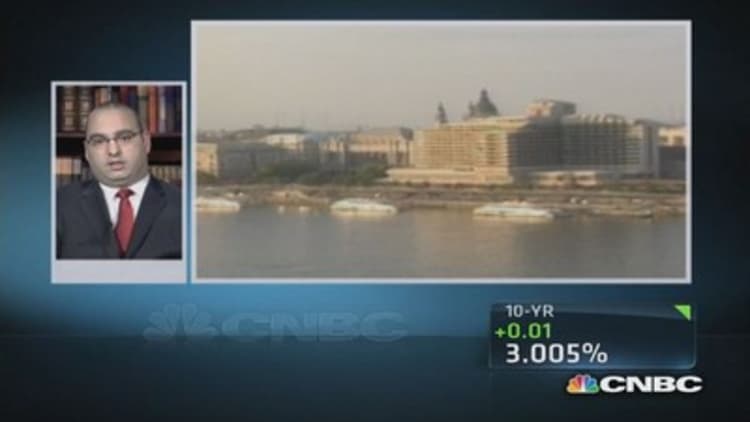Turkey's currency has plunged to its lowest point against the dollar for more than three decades this week.
In the short term, the lira's fall can be laid at the feet of political turbulence following a corruption probe which has led to three ministers resigning and even rumors Prime Minister Recep Erdogan may be next to leave.
Subsequent tax and price increases have led to fears thatinflation will rise rapidly in Turkey.
The country has confirmed its position as one of the more worrying of the 'Fragile Five' emerging markets causing concerns to investors.Together with the Brazilian real, Indonesian rupiah, Indian rupee and South African rand, the lira suffered a huge sell-off when it first emerged that the U.S. Federal Reserve was planning to gradually wind down its bond-buying program known as quantitative easing. Emerging markets had benefited from increased investment during the QE program.
(Read more: Fragile five: The new focus of currency wars)
The cost of Turkey's debt is also rising alarmingly quickly, with two-year benchmark bonds up to 10.51 percent, the highest since January 2012. Its current account deficit, the balance between exports and imports, estimated at 7.2 percent of gross domestic product, is causing concern, as a high deficit can indicate that a country has borrowed more than it can afford to pay back.

The country's central bank has been selling off its foreign exchange reserves in an effort to boost the value of the lira, but this has been outweighed by worries about the country's political future, which have prompted investors to sell off its currency.
Some argue that the lira's current weakness may be a buying opportunity.
"The recent sharp sell-off in the lira means that the currency is beginning to look undervalued," Christin Tuxen, senior analyst at Danske Bank, argued.
"Furthermore, inflation expectations have increased significantly and it is becoming more and more likely that the Turkish central bank will act more aggressively to curb the sell-off in the lira, for example with a fairly aggressive rate hike."


